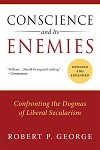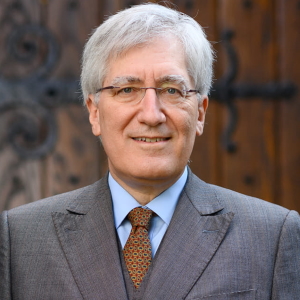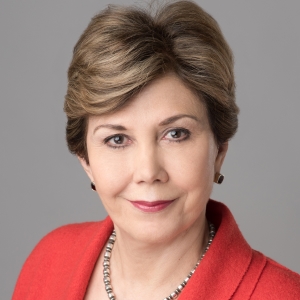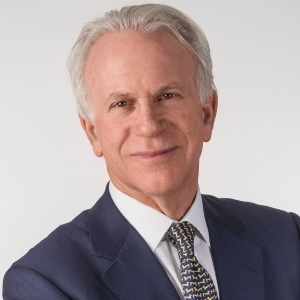Robert George Speaker Biography
Leading Christian Conservative Scholar
Robert George is a highly influential conservative speaker and a distinguished academic. He holds the McCormick Professorship of Jurisprudence and directs the James Madison Program at Princeton University. Furthermore, he frequently serves as a Visiting Professor at Harvard Law School. There, he imparts his knowledge on philosophy of law and related subjects. As a leading conservative intellectual, George’s academic rigor informs his compelling public speaking engagements.
Affiliations
Beyond his academic roles, Professor George has held significant public service positions. He served as Chairman of the U.S. Commission on International Religious Freedom. Moreover, he was a member of the President’s Council on Bioethics. Additionally, he was appointed by the President to the United States Commission on Civil Rights. Furthermore, he served as the U.S. member of UNESCO’s World Commission on the Ethics of Science and Technology. His extensive affiliations underscore his prominent voice within conservative thought and policy.
Boards
George actively serves on the boards of numerous influential organizations. These include the John M. Templeton Foundation Religion Trust and the Lynde and Harry Bradley Foundation. Moreover, he contributes to the Ethics and Public Policy Center and the Becket Fund for Religious Liberty. Additionally, he is involved with the National Center on Sexual Exploitation and the Center for Individual Rights, among others. His board memberships reflect his deep engagement with key conservative institutions and principles.
Books
Professor George is a prolific author of influential works. These include Making Men Moral: Civil Liberties and Public Morality and In Defense of Natural Law. He also penned The Clash of Orthodoxies and Conscience and Its Enemies. Furthermore, he co-authored Conjugal Union: What Marriage Is and Embryo: A Defense of Human Life. His extensive bibliography showcases his significant contributions to conservative thought and scholarship. As a respected conservative author, his books inform and shape public discourse.
Publications
Professor George’s scholarly articles and insightful review essays have appeared in numerous prestigious legal and philosophical journals. These include the Harvard Law Review, the Yale Law Journal, and the Columbia Law Review. Moreover, his writings have also reached a broader audience through contributions to the New York Times, the Wall Street Journal, and the Washington Post. His diverse publications solidify his position as a leading conservative intellectual and speaker.
Education
A distinguished graduate of Swarthmore College, Professor George holds advanced degrees from Harvard and Oxford University. His impressive academic credentials include multiple doctorates in law and philosophy. Furthermore, he was elected to Phi Beta Kappa and received a Frank Knox Fellowship. Additionally, he holds twenty-one honorary degrees. His rigorous education underpins his profound insights as a conservative speaker and scholar.
Awards
Professor George has received numerous prestigious awards. These include the United States Presidential Citizens Medal and the Bradley Prize for Intellectual and Civic Achievement. Moreover, he was honored with the Philip Merrill Award and the Paul Bator Award. Additionally, he received the Sidney Hook Award and a Silver Gavel Award. His extensive list of accolades recognizes his significant contributions to conservative thought and public discourse.
Honors
Professor George has delivered numerous distinguished lectures at prominent institutions. These include the John Dewey Lecture at Harvard and the Guido Calabresi Lecture at Yale. Moreover, he presented the Elizabeth Anscombe Memorial Lecture at Oxford and the Sir Malcolm Knox Lecture at the University of St. Andrews. His selection for these honors underscores his standing as a leading conservative intellectual and speaker.
Law
Professor George serves as general editor of New Forum Books at Princeton University Press. He is also a member of the Council on Foreign Relations and Of Counsel to the law firm of Robinson & McElwee. Furthermore, Baylor University has established the “Robert P. George Initiative in Faith, Ethics, and Public Policy.” His multifaceted engagement in law, academia, and public policy solidifies his role as a key conservative voice.
Robert George Speaking Topics
A CIVIL DISCOURSE: A Discussion with Professors Robert George and Cornel West (Live or Virtual)
A discussion about freedom of speech, freedom of thought, the Black Lives Matter movement, and the cancel culture with Professors Robert George of Princeton and Cornel West of Harvard: In the aftermath of George Floyd's killing, the country is re-examining fundamental aspects both of our society and how we talk about changing it. In order to undertake that examination in a spirit of honesty and free inquiry, one view holds that participants need to feel free from the danger, and sometimes, as we have seen, the reality, of punishment or intimidation for taking an unpopular point of view. Those holding this view are concerned that we seem to be entering an era of enforced conformity to a new norm—that America is systemically racist, and that a failure to accept and acknowledge this fact is disqualifying from having a place in academia, in public life, or even in the private sector. They are concerned that the radical changes being called for ignore the pillars of the successful American experiment that ultimately led from slavery to the outlawing of racial segregation, and that these changes will do grave harm both to American society as a whole and to the radical changes’ intended beneficiaries. On the other hand, some believe that our society is so inherently degraded by racism that a fundamental change is justified from the old ways of how we have felt we can think and speak about these issues. The thought is that the traditional notions of free speech and free thought are themselves devices that support oppression, and inevitably are employed to prop up established practices and ways of thinking that have created, and perpetuate, racial inequity. This view holds that those who have been harmed by racism are only further harmed by a so-called “balanced” discussion of their grievances. Professors George and West addressed whether both society and the ways in which we can discuss its virtues and its deficiencies, are in need of fundamental change.
Robert George Books
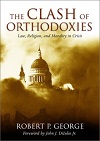
Clash Of Orthodoxies: Law Religion & Morality In Crisis
Purchase Book